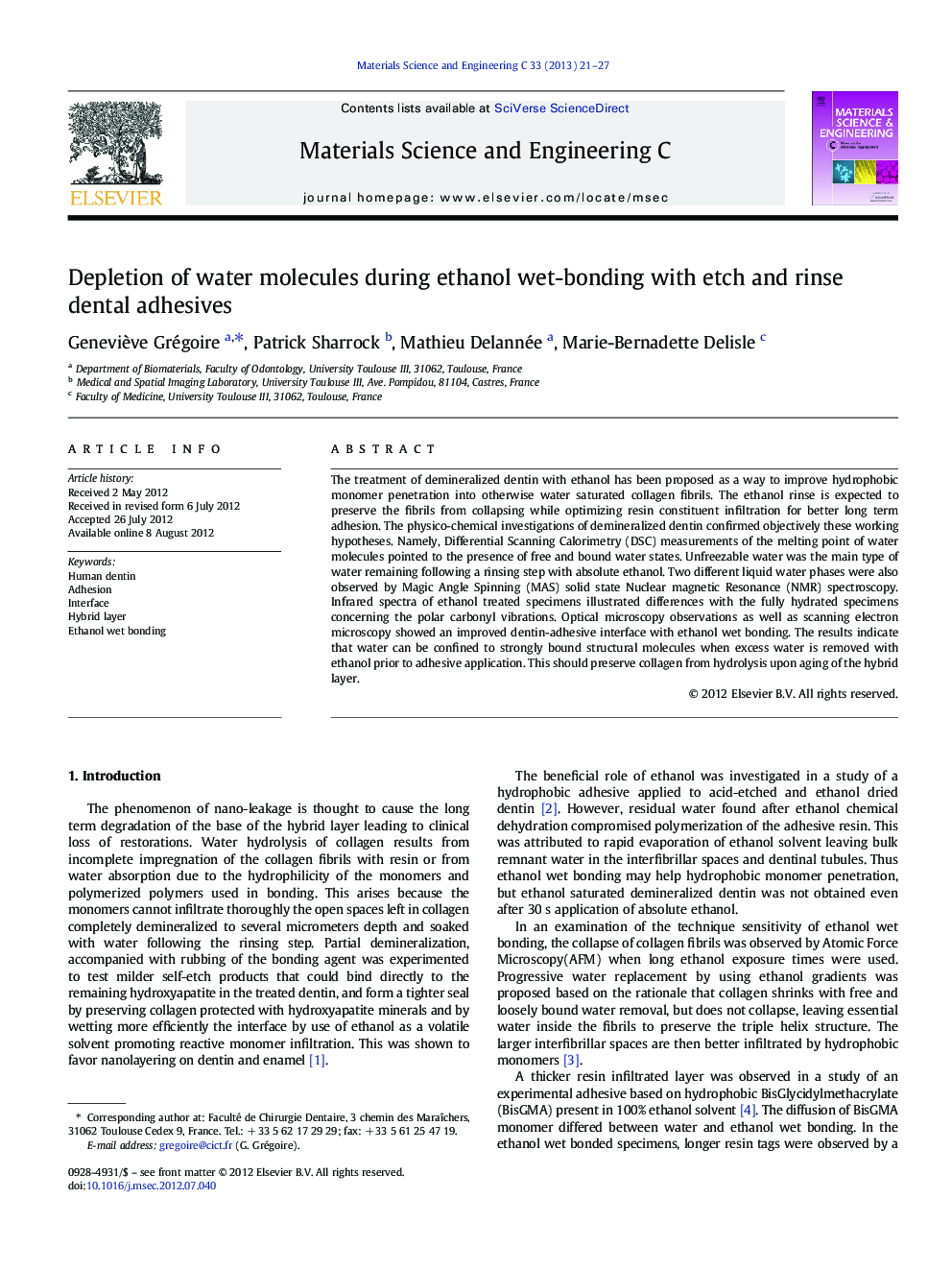| Article ID | Journal | Published Year | Pages | File Type |
|---|---|---|---|---|
| 1429035 | Materials Science and Engineering: C | 2013 | 7 Pages |
The treatment of demineralized dentin with ethanol has been proposed as a way to improve hydrophobic monomer penetration into otherwise water saturated collagen fibrils. The ethanol rinse is expected to preserve the fibrils from collapsing while optimizing resin constituent infiltration for better long term adhesion. The physico-chemical investigations of demineralized dentin confirmed objectively these working hypotheses. Namely, Differential Scanning Calorimetry (DSC) measurements of the melting point of water molecules pointed to the presence of free and bound water states. Unfreezable water was the main type of water remaining following a rinsing step with absolute ethanol. Two different liquid water phases were also observed by Magic Angle Spinning (MAS) solid state Nuclear magnetic Resonance (NMR) spectroscopy. Infrared spectra of ethanol treated specimens illustrated differences with the fully hydrated specimens concerning the polar carbonyl vibrations. Optical microscopy observations as well as scanning electron microscopy showed an improved dentin-adhesive interface with ethanol wet bonding. The results indicate that water can be confined to strongly bound structural molecules when excess water is removed with ethanol prior to adhesive application. This should preserve collagen from hydrolysis upon aging of the hybrid layer.
► Non-freezable water exists in demineralized dentine. ► Free water can be removed by ethanol rinse of the demineralized collagen. ► Ethanol wet bonding leads to a homogeneous hybrid layer free of defects.
